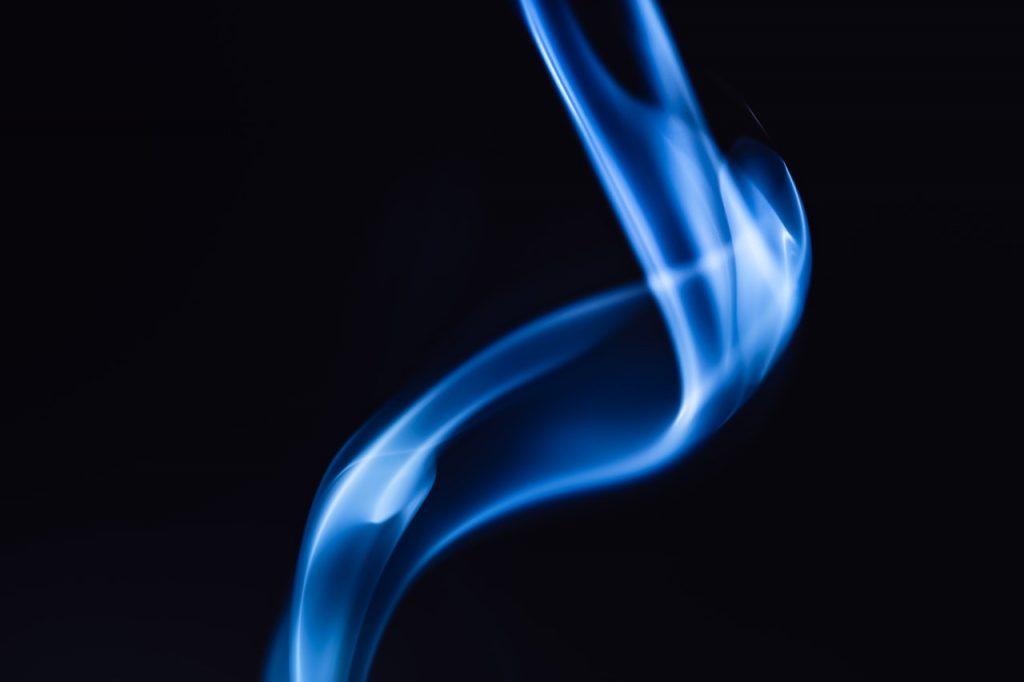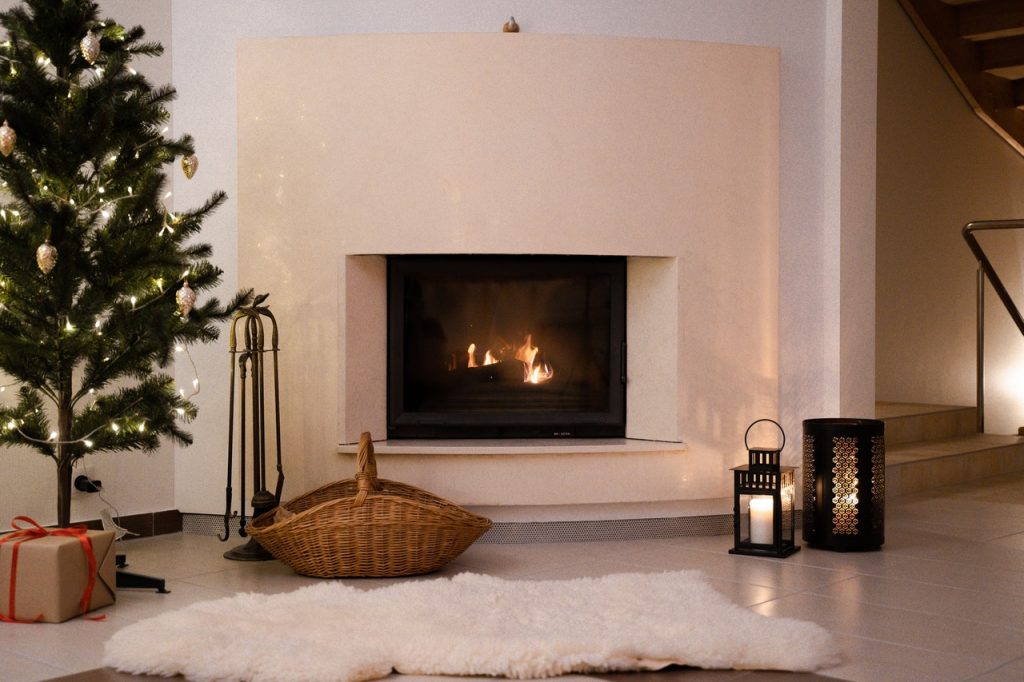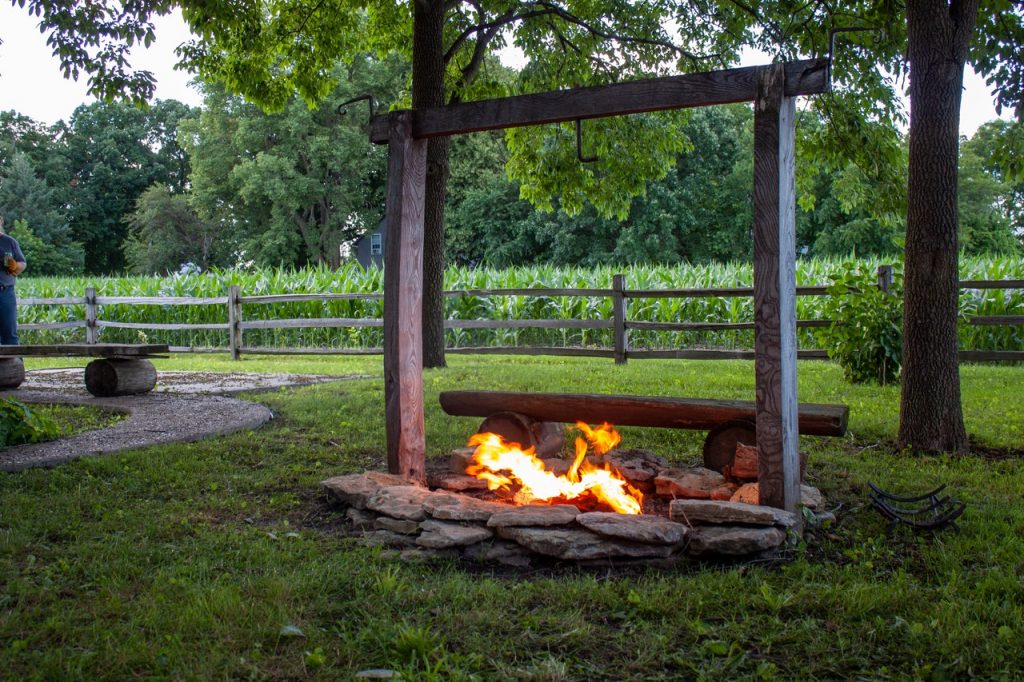
Whether you’re grilling in the backyard or just lounging by the fire for fun, a propane fire pit is something you’ll love to spend time with. The use of propane fire pits is more popular than ever, but one question always strikes- Are Propane Fire Pits Safe? The safety of propane fire pits is essential for all households to think about.
Propane fire pits are often safer than wood-burning fire pits because of the lack of open flames and sparks that produce. Propane fire pits are an ANSI-approved choice for fires. However, they should be installed by professionals and properly checked for safety several times a year, as they can cause carbon monoxide poisoning if misused. You can also use a propane fire pit to extinguish the flames instantly by cutting off the gas, making them even safer.
Propane fire pits are very popular in the summertime, and they can often provide a cozy atmosphere on a cold night. However, they have to be handled with care as propane can leak out of them and cause severe injuries if not properly taken care of.
- It has been proven that Propane fire pits emit carbon monoxide and require careful use when cooking with them indoors or outdoors with no ventilation system in place.
- A propane fire pit typically uses propane as fuel and is often used to heat outdoor spaces in homes or outdoor events. However, the combustion of propane can produce carbon monoxide, a toxic gas that is harmful to human health.
Are Propane Fire Pits Safe?
Many people are switching to a different and safer option for their backyard fire pits. Propane fire pits are a low-maintenance choice that is equally just as safe. In addition, propane is an environmentally friendly fuel and produces significantly less smoke than wood, charcoal, or gas.
It is also cheaper in the long term. These pits are great for people who have limited space or lack the need for wood. They also provide a cleaner and longer-lasting flame than traditional open fires.
But, every coin has two sides, there are things that you should consider! For example, propane fire pits can create an unsafe environment when not properly ventilated. This is especially true when they are fired without a proper chimney venting system into your home’s living space or if you’re using them indoors.
For example, it’s very common for people to fire their fires in the backyard with no chimney venting in place. This is because they think the air outside will be cleaner, which is not always the case.
Tips To Stay Safe
Safety should always be the top priority when it comes to fire pits. We take safety seriously and want you to too. It is essential to use a propane fire pit safely. One should use caution when using propane fire pits around children and pets as they tend to be curious about them. To enjoy this activity properly, follow the instructions below:
-Never use propane gas or natural gas as fuel for your device (this can cause carbon monoxide poisoning).
– Use only propane that is specifically made for indoor use. Avoid using liquid or gel fuels on direct heat sources such as fire pits and grills; they can cause serious health issues.
– Make sure the external vents are clear of any obstructions and securely attached to your home’s chimney or flue system.
– Keep your gas line at least 10 feet away from where you fuel your fire pit.
-Always use a spark arrester that attaches to the air intake system of your device.
-Never leave a fire unattended; it can quickly spread or start another fire.
-Always use a fire ring around the pit.
What are the health risks associated with propane fire pits?
Propane fire pits are a great way to spend time outside, but they come with some health risks. Propane fire pits are usually a safe alternative to traditional fireplaces, but many people don’t know about the health risks.
Propane Fire pits have the potential to emit carbon monoxide, which can be fatal. Carbon monoxide gas is produced when propane fuel combusts, and it can cause neurological impairment or death. Other health risks include eye damage from the heat emitted from the fire pit, burns from touching live coals on top of the fire. Some other potential health damages are:
- These fires emit large amounts of carbon monoxide and other hazardous chemicals that may cause permanent health problems to those exposed to them. They also emit heat at a high level which is not suitable for people and pets nearby.
- Propane is also a highly flammable gas that can cause explosions, fires, and carbon monoxide poisoning. They should not be used near or around any source of flames, such as candles or incense.
- Propane fire pits can cause serious health problems such as carbon monoxide poisoning and asthma attacks. Users should never leave their propane tank unattended while the grill is used.
- Propane fire emits carbon monoxide, an odorless and colorless gas that can cause dizziness, lack of concentration, and unconsciousness.
Can a Propane Fire Pit Explode?
Propane fire pits are a popular alternative to traditional fireplaces. They are made of metal and propane, eliminating the risk of wood burning. However, on occasion, these fires have exploded with fatal consequences.
Buying an ANSI-approved fire pit is an excellent way to avoid any accidents. Buying an ANSI-approved fire pit can be a little expensive, but it is worth it in the end. That’s because the standard, which has set the minimum level of safety for these pits, helps to protect workers and consumers from any injuries.
Most home-built or manufactured fire pits risk exploding when the temperature reaches a certain level. If you’re worried about accidental explosions, use only tin and ceramic pots for your fire pits. In addition to these materials exploding, wet materials explode quickly in the heat.
Why do fire pits explode?
Fire pits are a great way to get the winter party started, but they also have their own set of dangers. Fires of any type can be dangerous and cause unintended property damage. Every year, there are thousands of fires caused by backyard fire pits. The most common causes for these fires include failure to follow safety tips, improper placement, and the presence of gas leaks.
The question why do fire pits explode? Asked by many people, it is a burning topic that has caused much debate over time. This phenomenon is not just limited to backyard fire pits, as some people have reported a similar phenomenon with campfires as well!
The truth is that this question can be answered in multiple ways, and each individual will have their own opinion on it based on the factors that they consider essential in this scenario. Wet materials expand to a point and cause a chain reaction of explosions.
In a home-built fire pit, various materials such as bricks, stones, or logs are used. However, if the fire pit has been made from the wrong materials, explosions can occur. While if it is a manufactured pit, an explosion can occur simply because the rocks in a lava pit have become damp.
Wrapping Up
Propane fire pits are a fun and easy way to stay warm during cool fall and winter days. They are also a safe way to enjoy the heat! They are a safe option to get by because they don’t produce sparks like charcoal or wood. The only requirement is that you keep up with all safety regulations.
However, lighting a propane fire can be risky if you do not know what you’re doing! So it’s always good to follow the safety measure. Always follow the manufacturer’s instructions before lighting them up. Never leave your propane fire pit unattended when you’re not around to watch over it.

